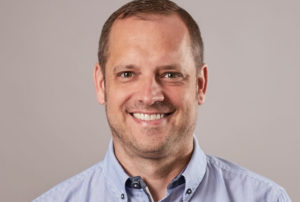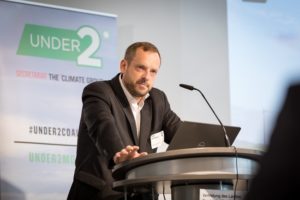Tap into the collective power of influential business and NGO pioneers to create new strategies and
tactics to build a more socially and environmentally conscious world.

Tap into the collective power of influential business and NGO pioneers to create new strategies and
tactics to build a more socially and environmentally conscious world.
Dr Lars Grotewold
Company/NGO Name:
Stiftung Mercator
Region, Country:
Germany

Stiftung Mercator is one of the largest philanthropic foundations in Germany. Open-mindedness, respect and tolerance are at the heart of our canon of values. We are committed to social cohesion and equal opportunities in life. We want to strengthen Europe, improve integration through equal educational opportunities and drive forward the energy transition as a trigger for global climate change mitigation.
Two of the most innovative institutions we have built together with our strategic partner, the European Climate Foundation, are the “Agora Energy Transition” and the “Agora Mobility Transition”. Both combine policy-relevant Think Tank work with organizing a peer-to-peer learning process for top decision makers from the business, administration, science and civil society sectors on the implementation of a low-carbon transformation.
Both initiatives have substantially contributed to structuring and advancing the political and societal debate about how to bring about a low-carbon transformation of the energy and transport sectors, respectively. Their work is highly appreciated by stakeholders across all sectors because it’s strictly non-partisan, of very high analytical quality and completely transparent about underlying assumptions.
We increasingly invest in supporting policy implementation on the sub-national and local level. We really want to better understand the local barriers for climate action and how they can be overcome. Some new projects, thus, focus on mutual learning amongst local decision makers or the co-creation of sustainable mobility concepts with citizens in the Ruhr Valley.

5. What are your top 3 career accomplishments?
I was very lucky in being able to pursue very different career paths so far. Trained as a molecular biologist, I started my career as a university researcher in developmental and stem cell genetics, followed by a few years with the main German policy advice organization on the structure of the higher education sector before joining the foundation in 2009.
I guess I am constantly driven by the desire to learn about new issues and political and societal contexts. It was, thus, very helpful for me to completely switch the perspective from being a researcher dealing with tiny details to policy advice focusing on systemic, structural and political aspects of the science system as a whole.
For me, sustainability is common sense. It’s very short-sighted to believe in endless growth in a resource-constrained world. In the interest of preserving a livable future for our species, there is simply no way around designing smart, circular and sustainable business practices. Economic success increasingly depends on such practices – “more of the same” is a business model of the past.
There are different trends triggering sustainability in the business sector: i.e. there are strong climate mitigation targets that – together with cost developments – impact massively on the transformation of the energy sector; the car industry is under massive pressure from consumers, regulators and new competitors. If they want to survive, they have to change.
Climate change already started to impact, in particular on the agriculture sector, Germany is severely lagging behind on digitalization, social inequalities are getting more massive. But unfortunately, politics in Germany is completely occupied with finding a way to deal with migration and the refugee situation in Europe. This debate currently prevents an adequate engagement with the pressing challenges mentioned above.
Germany was decisive for the global renewable energy revolution. With the adoption of its feed-in tariff it created the basis for the market entry of renewables, in particular wind and solar. The massively declining costs of these technologies over the past years are a consequence of this policy which motivated many other countries to adopt similar support schemes.
To learn more, please visit Stiftung Mercator and Dr Lars Grotewold on social media:
Stiftung Mercator
Dr Lars Grotewold
Main Projects:
https://www.agora-energiewende.de/en/
https://www.agora-verkehrswende.de/en/
https://www.cleanenergywire.org/
https://www.mcc-berlin.net/en.html
https://www.theclimategroup.org/energy-transition-happening
http://www.under2coalition.org/news/why-we-invested-energy-transition-platform